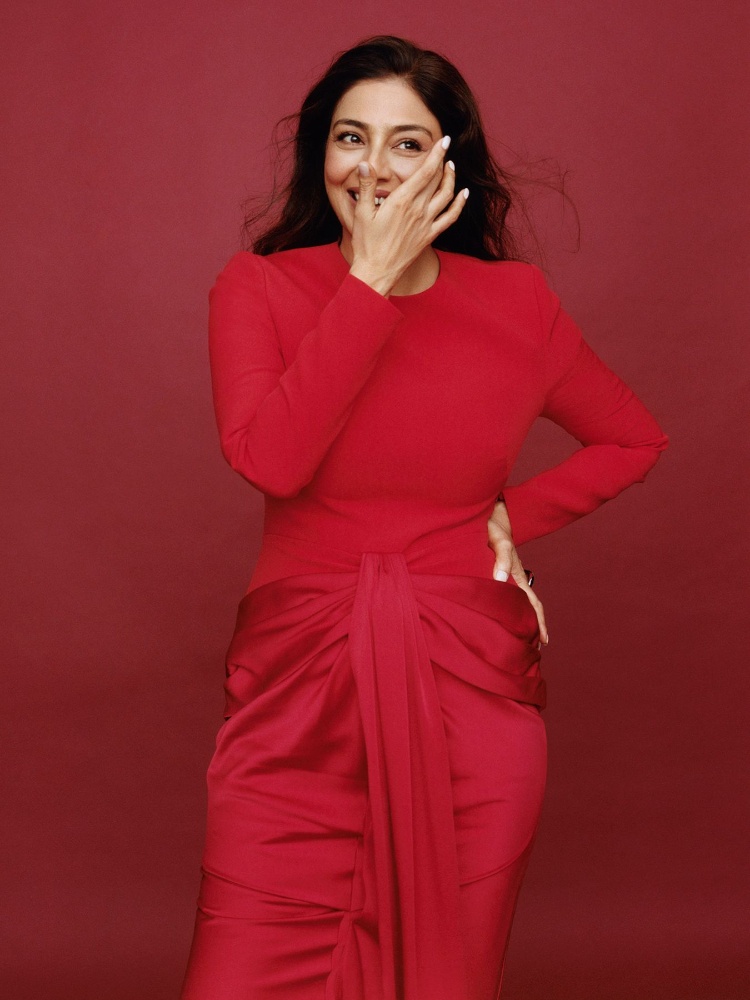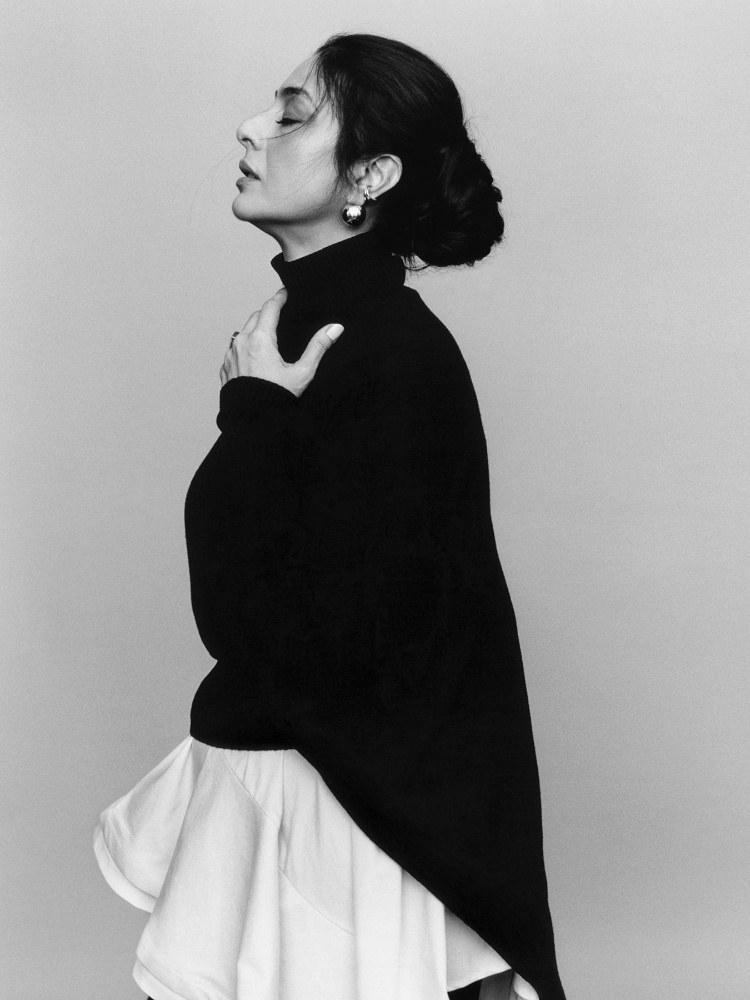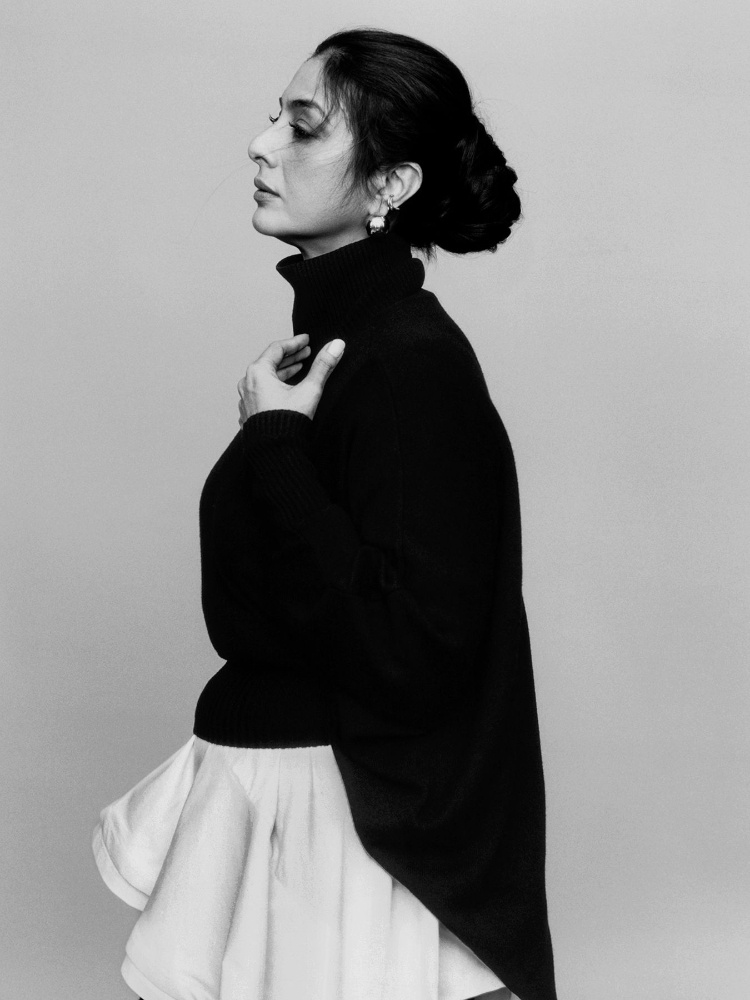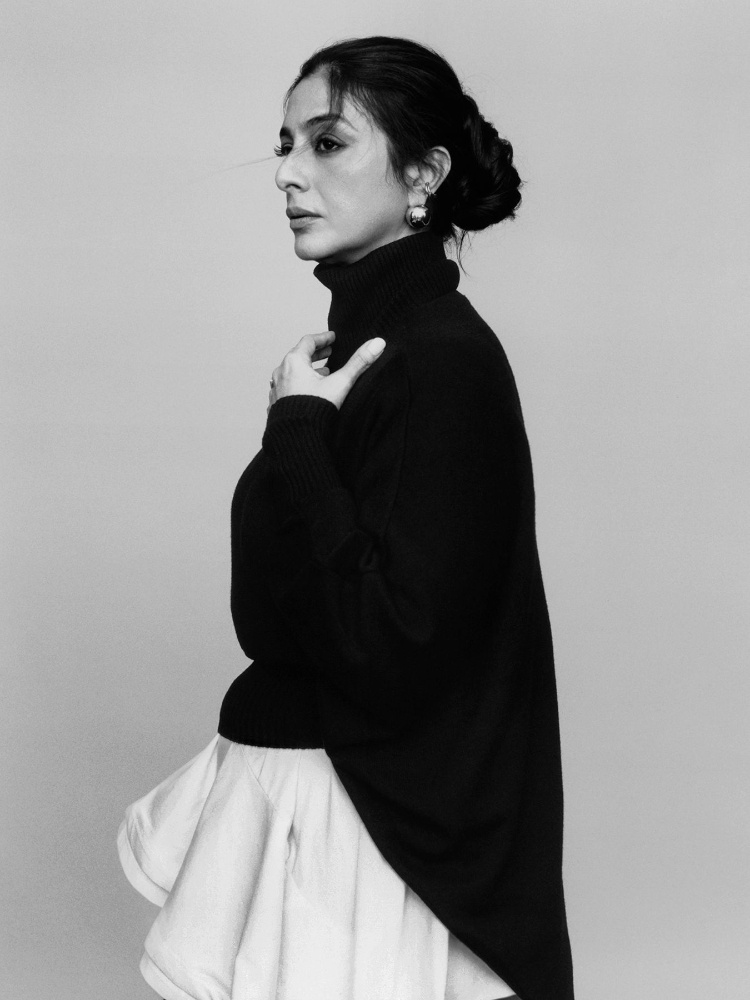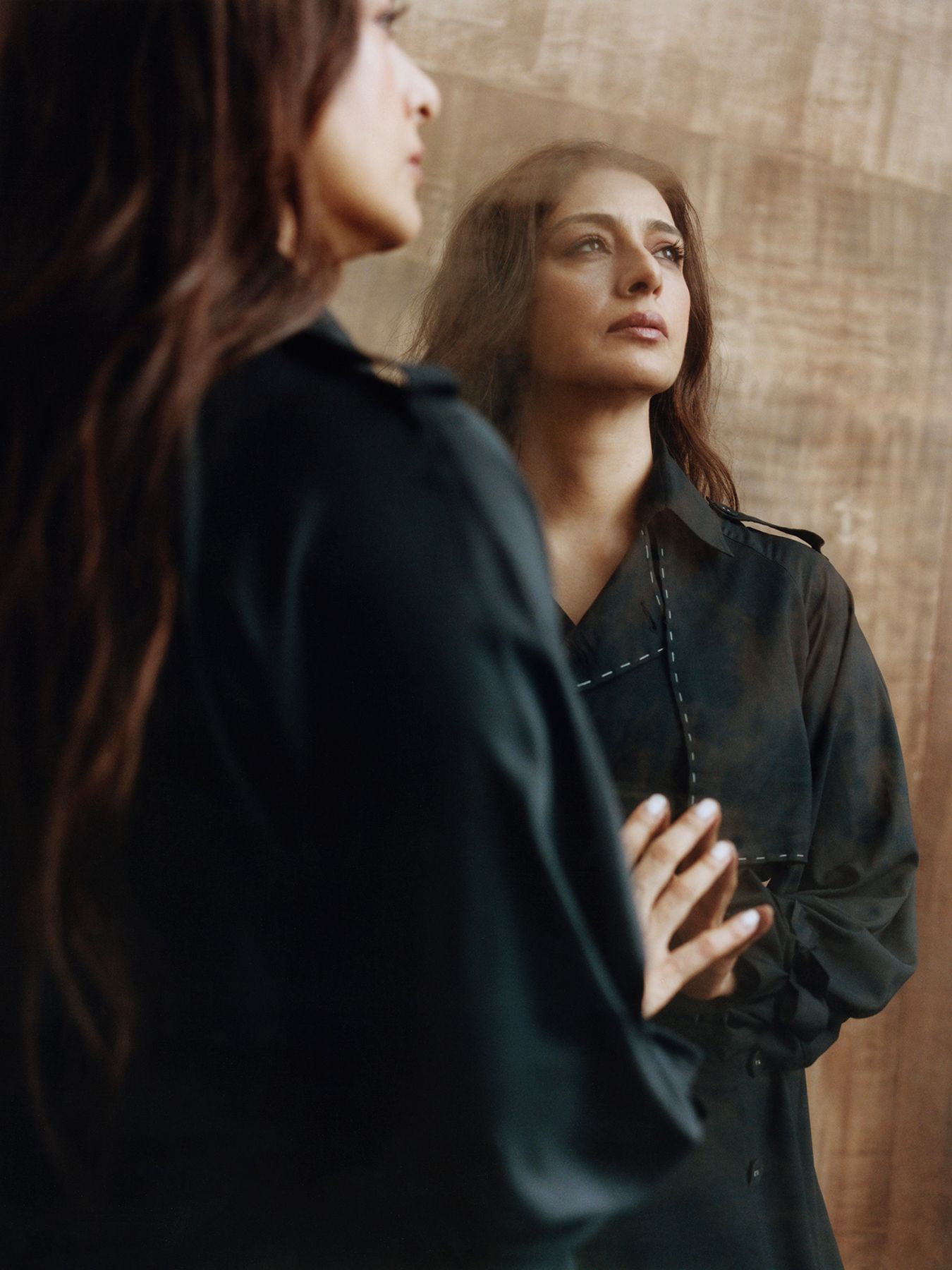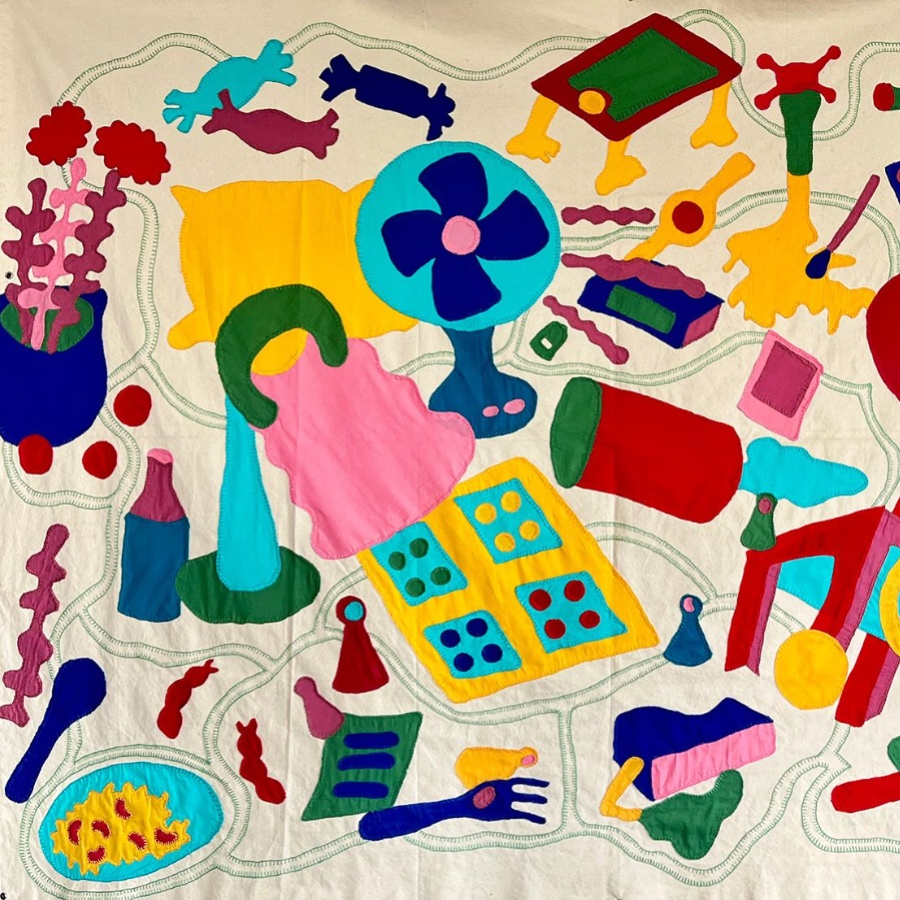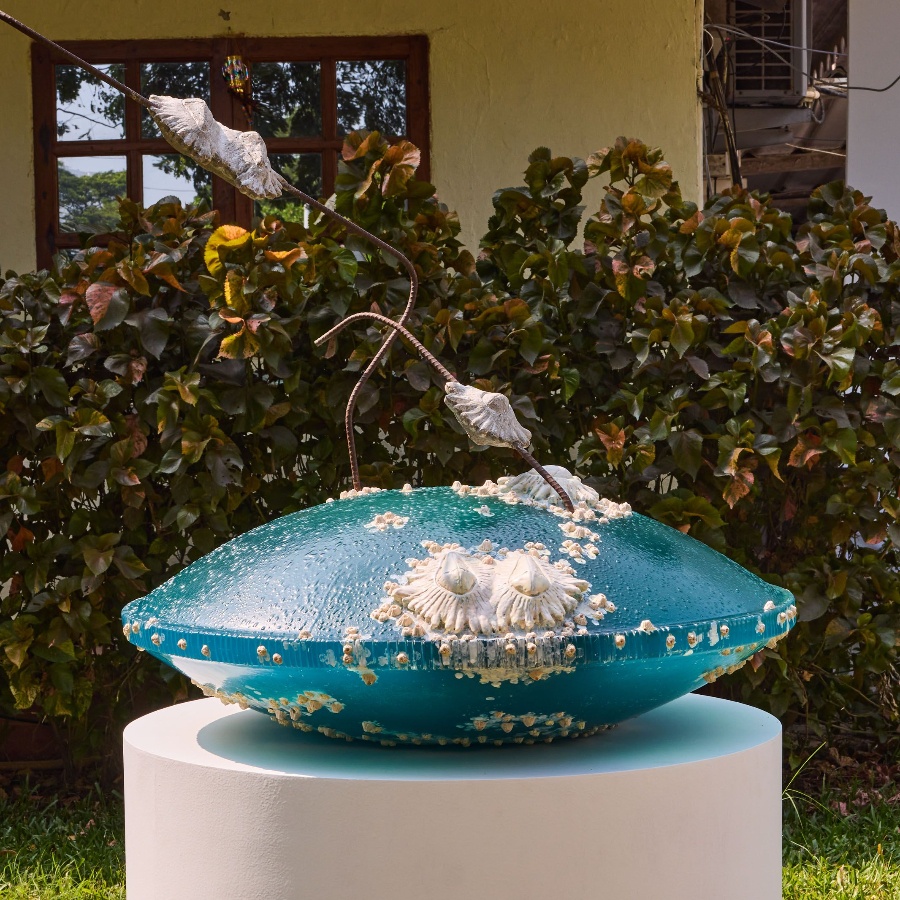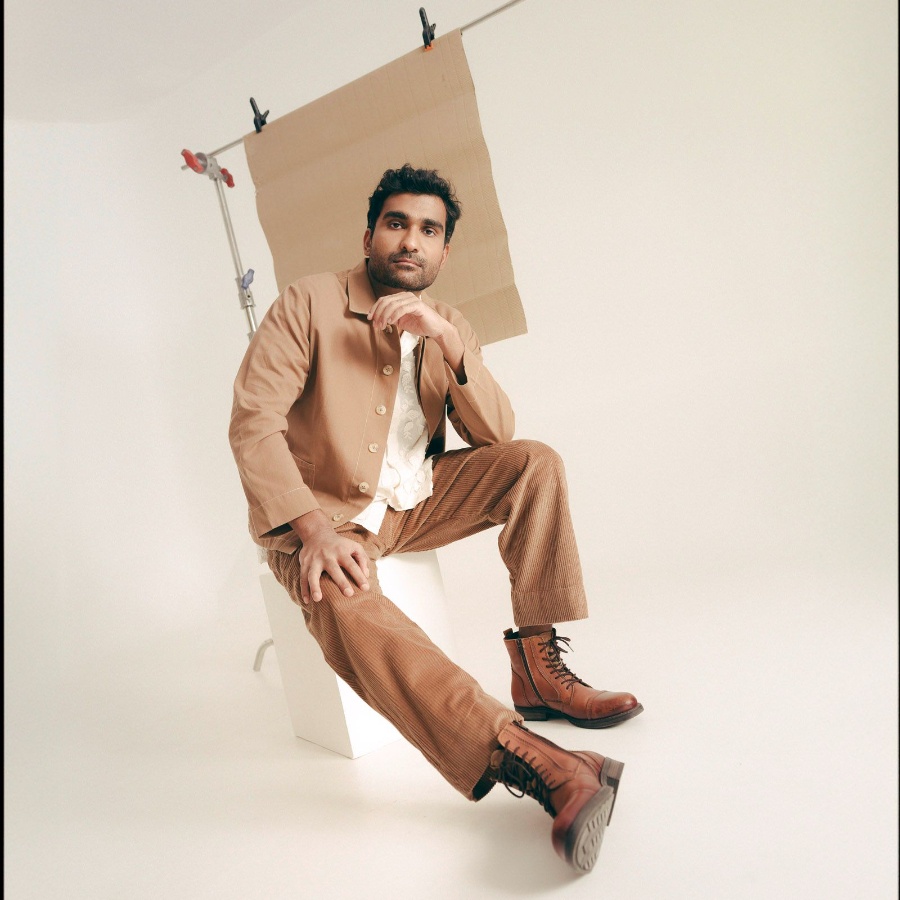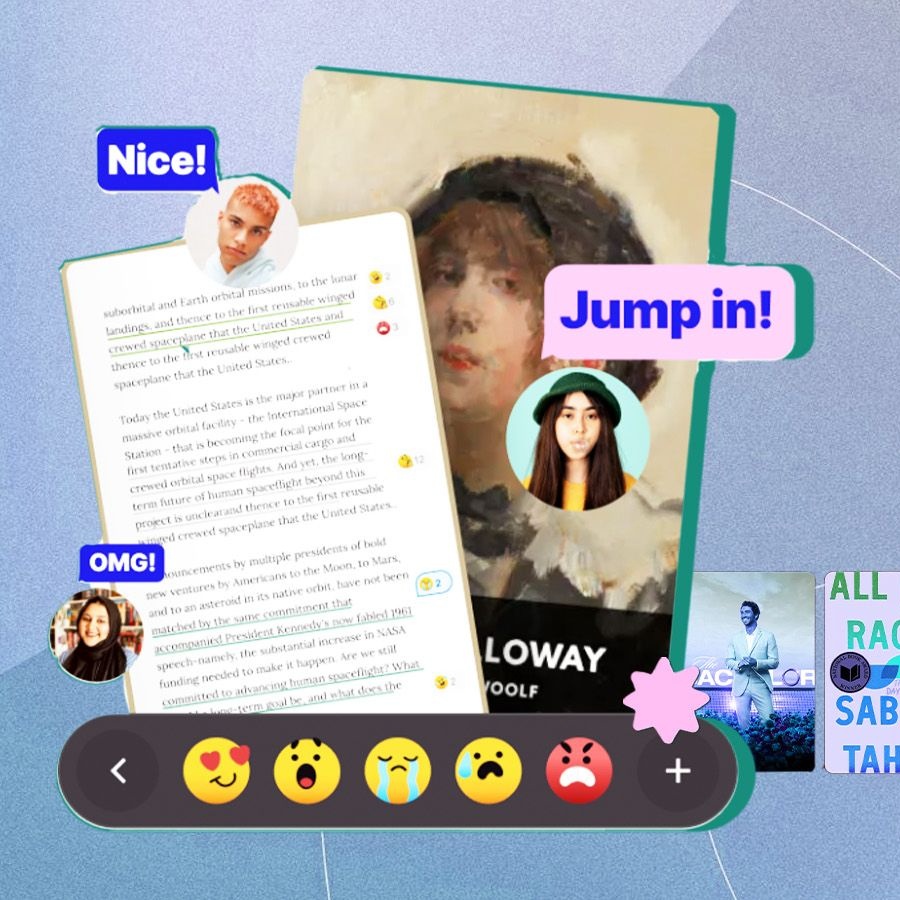Aura is one of those words that’s tossed around freely in a time when words have come to mean very little or nothing at all. But true aura is being enveloped in a cloud of personality that goes far beyond the person themselves, holds you prisoner in the beam of their eye, catches you in a web of smiles and scents that sticks to your hair and skin.
Tabu opens the door of her home office to greet me in a billowing black kurta, jewellery dancing around her face, hair loosely tied, and I can’t stop grinning at her like some kind of goddamn moron. She insists I try the walnuts she’s got from Kashmir, we chat about growing up in Hyderabad and what the city used to be, she tells me her closest friends are Malayali or Tamilian, and about their day trips to Pondicherry together. I realise that I’m trying to inch closer and closer to her on her massive couch as we speak, and at some point, I’m hanging half off the thing, leaning into her, unable to look away from her.
It is no hyperbole to say that at 53, she is one of our greatest actors, as enigmatic as she is charming, as becoming as she is unafraid. A woman of the kind we see rarely these days—and she’s on top of her game, doing some of the most interesting work of her career. Her newest role is her next international production, after The Namesake (2006), Life of Pi (2012) and most recently, A Suitable Boy (2020). In Dune: Prophecy, a prequel to Denis Villeneuve’s Dune adaptation which releases on Jio Cinema today, she plays Sister Francesca. The series is set 10,000 years before the films, and is based on the 2012 novel, Sisterhood of Dune, which tells the origins of the Bene Gesserit, a shadowy order of magical women who secretly pull the strings of the universe. Can you imagine a better role for her? “Oh it’s a beautiful character,” she says. “So many layers, so many stories to her. It was fantastic, I worked with a bunch of amazing people and there were so many women involved in key positions there. And I will always love the time I spent with Mark [Strong] and Emily [Watson]—they are like treasures, treasures.”
It is a role that fits easily into Tabu’s oeuvre, which includes all manner of mainstream, commercial films and a smorgasbord of some her most beloved ones featuring flawed, complicated women, sometimes even convincing feminine wrecks. Women who operate in the greys, or what her Wikipedia means when it states her penchant: “often known to play troubled women”. She laughs, “It was very radical at that time, when I started doing these roles. I was called brave and courageous. But picking these roles came very easily to me. Why would we leave this space unexplored? I was doing Vijaypath (1994) and Jeet (1996) and Hum Saath Saath Hain (1999) and Saajan Chale Sasural (1996), so when I did Chandni Bar (2001), people were like, ‘This is blasphemy.’ But I think my success in commercial films brought an audience to these other films. And I had great fun. Somebody once said to me, ‘You’re not ahead of your time, you are against it.’ I just wanted to do things my way. I wanted to do what I wanted to do.”
Tabu also brought a different kind of woman to our screens, one we weren’t used to seeing and one that we were scared of. That we are still scared of. “Female sexuality had a very different portrayal then,” she says, “and I think films like Astitva (2000), Chandni Bar, Maqbool (2004), even Cheeni Kum (2007) gave us a new kind of female sexuality. That was the most interesting part for me.” Are things different now, are they better? “I wouldn’t say better,” she says carefully. “Sometimes what happens is that you want to pronounce sexuality so loudly that it feels unnatural. In these films, the sexuality was underlying, without being underlined. It’s like seeing a woman as a whole being. A complete being.”
